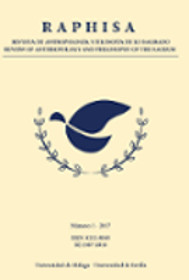Koizumi Yakumo: Spanish Translation of "The eater of dreams"
DOI:
https://doi.org/10.24310/raphisa.7.2.2023.17085Keywords:
Baku, Lafcadio Hearn, Japanology, Japanese MithologyAbstract
"The Eater of Dreams" is a short story by Lafcadio Hearn, also known as Koizumi Yakumo, published in 1903 in Kott?, a collection of legends from Japanese folklore compiled from oral sources and traditional books. Here, Hearn introduces us to the creature known as the Bakú, a mythological being created by the gods using leftover parts from other animals after the Creation. Its origin can be traced back to China, where it was believed to feed on evil spirits. Upon arriving in Japan, it maintained this role, gradually transforming into a malevolent dream devourer, protecting dreamers from misfortune. The Bakú is a yokai that has left a clear imprint on Japanese culture; lullabies are still sung about it before bedtime, and carved amulets featuring its figure can be found. Without further ado, we present this remarkable story by Hearn, whose purpose was to introduce Western readers to the sacredness of the Bakú, its relevance and influence in everyday Japanese life, and the deep spiritual connection between the Japanese and gods, spirits, and supernatural beings.
Downloads
Metrics
References
Downloads
Published
How to Cite
Issue
Section
License
Copyright (c) 2024 Review of Anthropology and Philosophy of the Sacrum

This work is licensed under a Creative Commons Attribution 4.0 International License.
License permitted by the journal: Public Domain. Authors retain the copyright and full publishing rights without restrictions.






